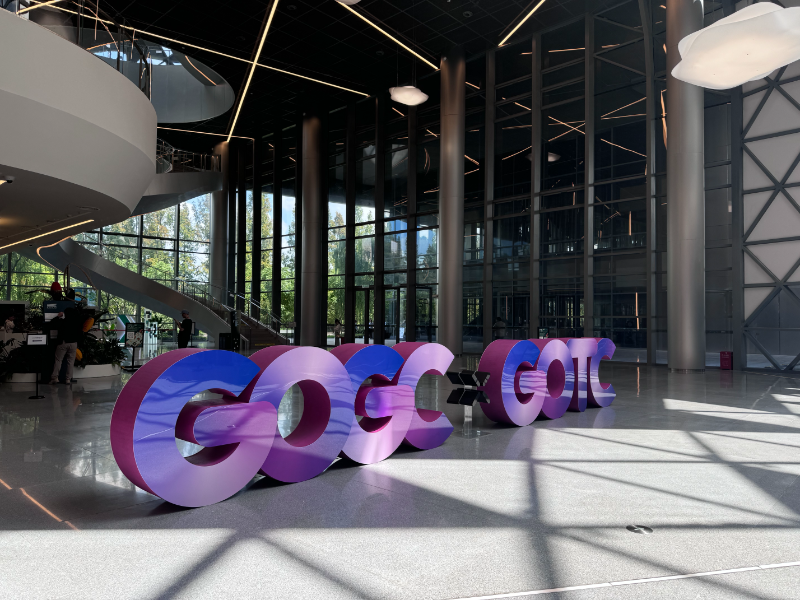- The 2024 Global Open-source Technology Conference (GOTC) and Global Open-source Geek Carnival (GOGC), co-hosted by the Pudong Software Park, convened in Shanghai to foster innovation, build connections, showcase talent, promote best practices, and advance the development of the open-source ecosystem through a series of engaging events and discussions.
- Academicians from the Chinese Academy of Sciences delivered keynote speeches, while executives from organisations including the OpenAtom Open Source Foundation, the Linux Foundation, and major tech companies unveiled the open-source ecosystem network, announced a strategic partnership between 21Vianet and Open Source China, and shared insights on intelligent computing and AI initiatives.
OUR TAKE
Attending the 2024 GOTC and GOGC was exhilarating. The event’s emphasis on open-source technology and its future prospects was inspiring. Keynotes by esteemed academicians and industry leaders underscored the importance of collaboration and innovation. Special forums on talent development and AI advancements reinforced my belief in the transformative power of open-source ecosystems. Witnessing the unveiling of the Zhangjiang node and strategic partnerships solidified my conviction in the sector’s growth and potential.
–Vicky Wu, BTW reporter
What happened
The 2024 Global Open-source Technology Conference (GOTC) and Global Open-source Geek Carnival (GOGC) convened at the Zhangjiang Science Hall in Shanghai from the August 15 to August 16. GOTC, inaugurated in 2021, is a global gathering for developers with a focus on open-source technology. This year, the Pudong Software Park co-hosted the event, combining the “GOTC” and “GOGC” to create a novel open-source spectacle.
This conference will gather developers, community members, entrepreneurs, business leaders, media people who are passionate about open source technology, as well as industrial elites, cross-border talents and young forces from various open source project application scenarios around the world. Through keynote speeches, round-table discussions, and interactive workshops, participants will have the opportunity to exchange practical experience and explore cutting-edge technologies, so we are so excited for witnissing innovation, and enjoying the charm of open source.
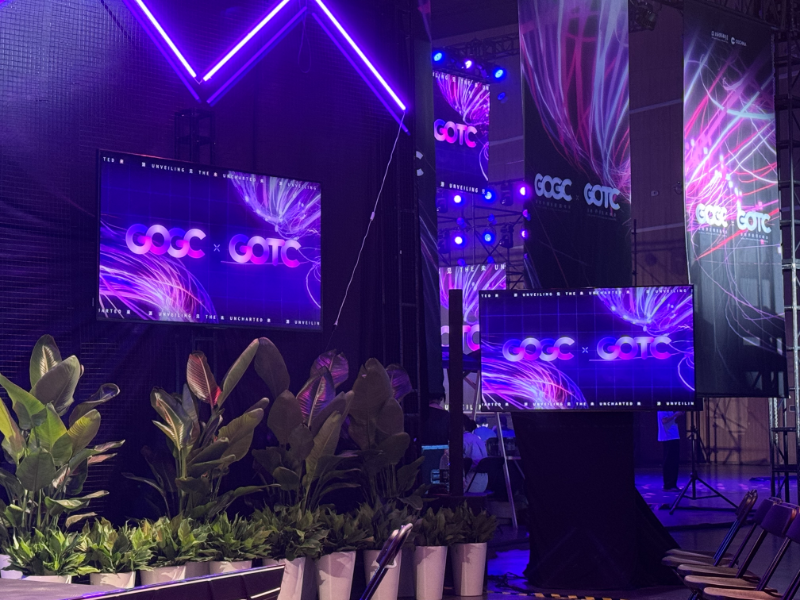
Main forum: Geeks and technology, industry and ecosystem, sourcing the future
Two academicians from the Chinese Academy of Sciences attended and delivered keynote speeches.Executives from organisations such as the OpenAtom Open Source Foundation, the Linux Foundation, the LF AI & Data Foundation, Red Hat, Baidu, Huawei, 21Vianet, and Open Source China contributed presentations and insights. The main forum featured the unveiling of the open-source ecosystem network and the Zhangjiang node, as well as the announcement of a strategic partnership between 21Vianet and Open Source China for intelligent computing interconnection and the initiation of AI.
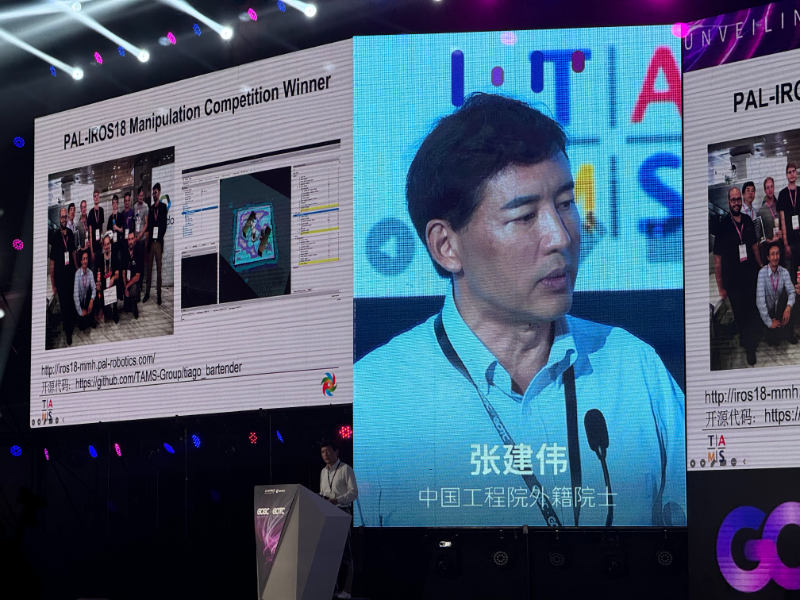
Special forum: Global open-source talent and education forum
In today’s world, where open-source technology is increasingly becoming an industry standard, investing in the development of open-source talent is an investment in the future. By engaging in and contributing to open-source projects, open-source technology talent can help companies keep up with the latest technological trends, reduce research and development costs, increase development efficiency, and enhance the quality and competitiveness of their products in the market. The Global Open-source Talent and Education Forum was fully supported by the LF Open Source Software Academy. Experts from various fields discussed and shared critical open-source technology trends, the challenges faced by open-source education and talent development, open-source use cases, and best practices. The goal was to assist the industry in nurturing more open-source talent and guide developers on how to participate in open-source projects and start their open-source careers.
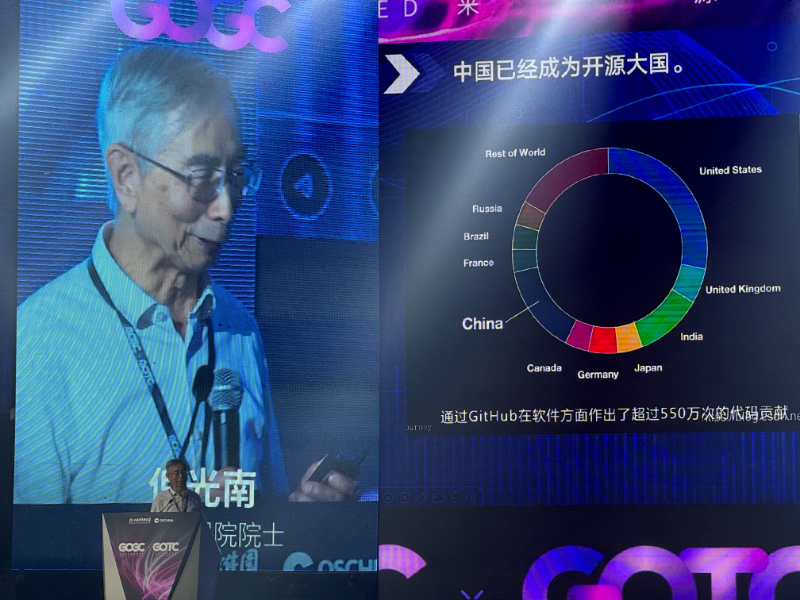
Special forum: LLMOps best practices
LLMOps is a methodology specifically designed to manage and automate the lifecycle of Large Language Models (LLMs) using tools and methodologies, from fine-tuning to maintenance. Through model-specific operations, data scientists, engineers, and IT teams can efficiently deploy, monitor, and maintain large language models. This forum guided developers through exploring and sharing the latest practices, technologies, and tools for LLMOps, delving into how to manage and maintain large-scale language models efficiently and reliably to ensure optimal performance in production environments.
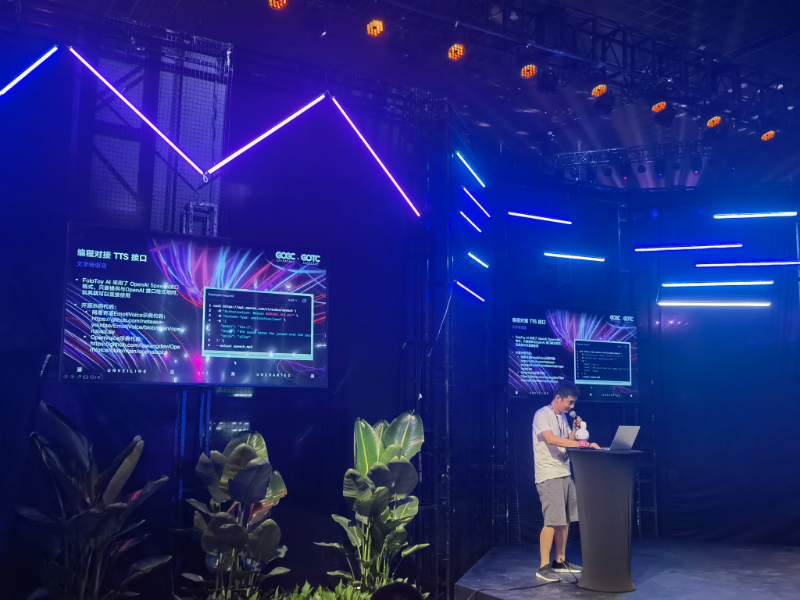
Special forum: Hard-core AI technology innovation and practice
True technological innovation requires not only theoretical depth but also broad practical application and a spirit of exploration. The forum brought together tech enthusiasts from the developer community to share their innovative practices and experiences in the realm of AI. Hard-core technologies, such as Senparc.AI’s self-evolving AI agents system, Jina AI’s search result optimisation techniques, Apollo’s exceptional development experience, FoloToy’s AI toy development, and Zhipu AI’s intelligent agent capability development, were showcased at the forum.
Also read: IBM unveils open-source AI models and partners with Saudi Arabia
Also read: Who is Sanjiva Weerawarana? CEO of WSO2 is an open-source community leader
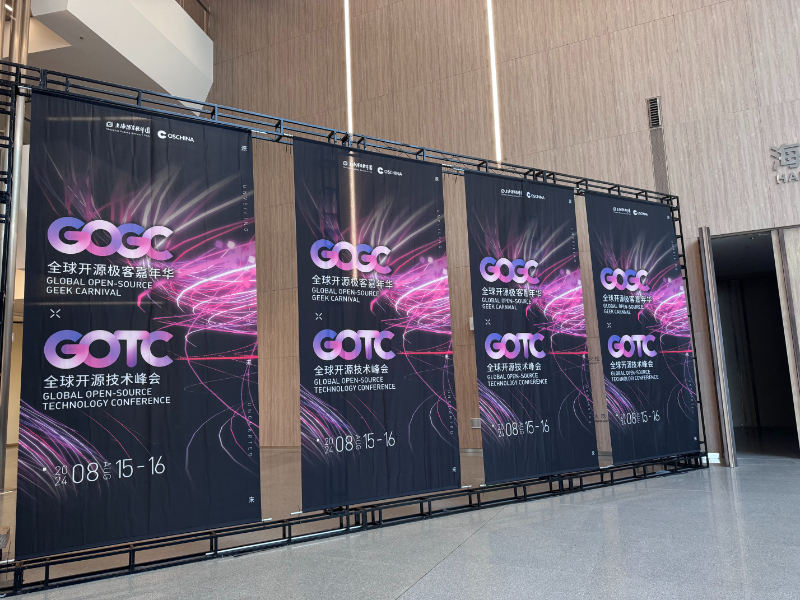
Why it’s important
By gathering experts and enthusiasts from diverse backgrounds, the conference provided a unique opportunity for the exchange of ideas and experiences, which is crucial for accelerating technological advancements and promoting cutting-edge solutions. The event facilitated connections between developers, industry leaders, and academic institutions, paving the way for partnerships and collaborations that can lead to new breakthroughs in technology.
The open-source model, which leverages collective intelligence and expertise, has become the dominant force in global computing technology and industrial innovation. China is an important participant and contributor to the global open-source ecosystem, yet it remains on the periphery, facing challenges such as insufficient control over foundational technologies and the dominance of major open-source community platforms by foreign entities. It is imperative to strengthen open-source systems and accelerate the creation of a distinctive Chinese open-source ecosystem.
Lv Yazhou, deputy director of the strategic cooperation department of the China Electronics Corporation
Moreover, the Global Open-source talent and education forum aimed to nurture and develop the next generation of open-source talent, ensuring a sustainable pipeline of skilled professionals who can contribute to the ecosystem. Forums such as LLMOps and hard-core AI technology innovation provided valuable insights into best practices for managing and deploying large language models and other advanced AI technologies, enabling organisations to optimise their approaches and achieve better outcomes.
Open-source is a significant marker of the new round of technological revolution and industrial transformation. Global practices have shown that making full use of open-source, participating in it, supporting it, and contributing to it, is a key means to accelerate technological iteration and innovation, achieve surpassing and leadership. Open-source is a source of innovation for cultivating core technologies, a critical approach to building advantages in modern industrial systems, and an important way of collaboration to drive the in-depth development of the digital economy.
Cheng Xiaoming, chairman of the OpenAtom Open Source Foundation
The unveiling of the open-source ecosystem network and the Zhangjiang node, alongside strategic partnership announcements, highlighted the commitment to building a robust and interconnected open-source ecosystem in China. The participation of leading organisations such as the OpenAtom Open Source Foundation, the Linux Foundation, and major tech companies demonstrated the industry’s recognition of the importance of open-source technology in shaping the future of computing and related fields. Overall, the GOGC 2024 played a pivotal role in advancing the open-source movement, fostering a collaborative environment that encourages innovation and knowledge-sharing among global tech communities.

